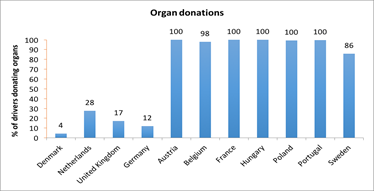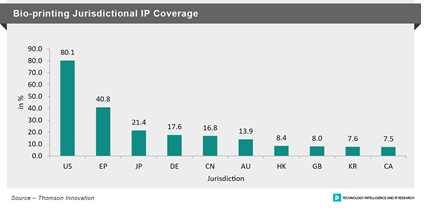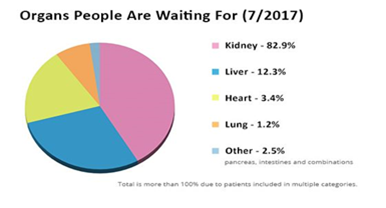About Conference
ConferenceSeries llc LTD invites all the participants from all over the world to attend ‘World Congress on Organ Transplantation and Artificial Organs' during November 12-13, 2019 Brisbane, Australia which includes prompt keynote presentations, Oral talks, Poster presentations and Exhibitions.
Organ Transplantation 2019 is the premier event that brings together a unique and international mix of experts, researchers and decision makers both from academia, medical and hospitals across the globe to exchange their knowledge, expertise and research innovations to build a world class expert doctors organ transplantation and artificial organs conference.
It’s our greatest pleasure to welcome you to the official website of ‘2nd World Congress on Organ Transplantation and Artificial Organs that aims at bringing together the Professors, Researchers, Doctors, and Surgeons to provide an international forum for the dissemination of original research results, new ideas and practical development experiences which concentrate on both theory and practices. The conference will be held in November 12-13, 2019 Brisbane, Australia. The theme of the
conference is around," Exploring New Dimensions in Organ Transplantation”. Featuring 2days of scientific workshop, special sessions, speaker & poster session, Industrial Expo. 300+ attendees from all over the world.
The event focuses on aspects such as Organ Transplantation Surgery, Heart Transplant Surgery & Artificial Heart, Liver Transplantation & Bio Artificial Liver, Kidney Transplantation & Artificial Kidney Dialysis, Lungs Transplantation & Artificial Lungs and Abdominal Organ Transplantation as well understanding tools to overcome barrier and enable successful data analysis and management. Presentations concentrate not only particular to Organ Transplantation but also Artificial Organs. ConferenceSeries llc Ltd organizes a conference series llc ltd of 1000+ Global Events inclusive of 300+ Conferences, 500+ Upcoming and Previous Symposiums and Workshops in USA, Europe & Asia with support from 1000 more scientific societies and publishes 700+ Open access journals which contains over 30000 eminent personalities, reputed scientists as editorial board members.
Why to attend???
With members from around the world focused on learning about Organ Transplantation and its advances; this is your best opportunity to reach the largest assemblage of participants from the Organ Transplantation and Artificial Organs community. Conduct presentations, distribute information, meet with current and potential scientists, make a splash with new advancements and developments, and receive name recognition at this 2-day event. World-renowned speakers, the most recent techniques, developments, and the newest updates in Organ Transplantation are hallmarks of this conference.
Target Audience:
-
Heart surgeons
-
Scientists
-
Researchers
-
Expert Surgeons
-
Doctors
-
Dermatologists
-
Organ Transplantation Associations
-
Organ Transplantation Societies
-
Business Entrepreneurs
-
Training Institutes
-
Hospitals
-
Manufacturing Medical Devices Companies
Market Analysis
Organ transplant immunosuppressant drugs are the category of drugs which are administered to minimize the chances of organ rejection after transplantation. When a person undergoes any transplantation, the body recognizes the transplant as a foreign tissue and attacks it, resulting in rejection. These drugs dilute the immune system, hence reducing the reaction towards the transplant. The factors driving this market include the advancements made in tissue engineering and organ transplantations. These transplantations help in survival of many patients as well as enhance the quality of life. The lack of availability of organs and high cost of transplantation are the limitations for the growth of this market. The increase in use of tissue engineering for generation of implants provides growth opportunity to this market.
Organ transplant immunosuppressant drugs market has accelerated the growth of rapid organ transplant by reducing the harmful side effects such as autoimmune diseases. These novel drug therapies are strategically analyzed in the report in order to provide comparative benefits. The report is also focusing on the regulatory issues and commercial mandate that are hindering the growth. Porter’s five forces model is strategically analyzed in the report to project current and future market scenarios. The value chain analysis of the organ transplant immunosuppressant drugs market is dealt strategically. Top wining strategies adopted by the key players competing in this market are critically analyzed through primaries.
Value of Organ Transplantation and Artificial Organs in Society
Transplantation in Number of Procedures. The global and regional markets for 'Organ and Tissue Transplantation' in this report are analyzed by the following Product Segments - Organ Transplantation (Heart, Kidneys, Liver, Pancreas, and Lungs). The US market for 'Organ and Tissue Transplantation' in this report is analyzed by the following Product Segments: Organ Type (Heart, Kidneys, Liver, Pancreas, Lungs, and Intestine), Tissue Type (Cornea, Heart Valve, Skin Grafts, Vascular Grafts, Bone Marrow, and Bone Grafts), and Bone Graft Transplantation (By Graft Type: Autologous Graft, Allograft, and Other Materials; By Application Type: General Orthopedics, Spinal Fusions, and Cranio/Maxillofacial). The report provides separate comprehensive analytics for the US, Canada, Japan, Europe, Asia-Pacific, Latin America, and Rest of World. Annual estimates and forecasts are provided for the period 2013 through 2020. Also, a seven-year historic analysis is provided for these markets. Market data and analytics are derived from primary and secondary research

At least 79,950 kidney transplants done in 2014.
*Kidney transplants are done in 99 countries.
* 27,397 donations were reported from dead persons in 2014. Currently there are 77 countries worldwide with deceased donation programmes
* About 119,900 solid organs were transplanted worldwide in 2014, an increase of 1.8 per cent since 2013
*26,150 liver transplants were done worldwide in 2014. Liver transplants are performed in 74 countries
* 119,873 organs transplanted annually (2014)
* 27,397 actual deceased organ donors in 2014
* 13.6 transplants per hour done in 2014
* In 2012, the UAE did 19 kidney transplants from living donors and 28 in 2013 - Data from Global Observatory on Donation and Transplantation

The global transplantation market is expected to reach USD 51.0 billion by the year 2025, growing at a CAGR of 9.1%, according to a new report by Grand View Research, Inc. Growing incidence of organ failure has resulted in massive growth in the transplantation market. Rising demand for transplant products such as tissue products, immune suppressants, and organ preservation solutions is a major factor anticipated to boost growth of the market during forecast period. Thus, many biotechnology and medical device companies have begun to concentrate on the development of advanced transplant products for management of organ failure. Genomics based diagnostics dominated the overall market in terms of revenue at 36.4% in 2013 majorly owing to the presence of a relatively larger number of R&D programs. Genomics based personalized medicine segment on the other hand is expected to grow at the fastest CAGR of over 12.0% from 2014 to 2020 due to increasing demand for population based therapeutic solutions and subsequent increase in R&D initiatives. The organ and tissue transplantation market in the U.S. is estimated at $11.7 billion in 2005 and is expected to rise at an average annual growth rate (AAGR) of 5.2% to $15.1 billion by 2010.The transplantation market is estimated at just under $5 billion in 2005 and is expanding at an AAGR of 4.8%.The fastest growing sector is small bowel (intestine) transplantation. Kidney and liver transplantation will account for 78% of the total in 2005.The U.S. tissue transplantation market totaled about $6.8 billion in 2005. It is projected to grow at an AAGR of 5.5%, to $8.9 billion in 2010.

Organ Transplants in Australia
On 2 July 2008 the Australian Government, recognizing the importance of bridging the gap between the demand for transplantation and the availability of organs and tissues, announced a national reform programme to implement a world’s best practice approach to organ and tissue donation for transplantation, which was endorsed by the Council of Australian Governments on 3 July 2008. In January 2009 the Organ and Tissue Authority was established to manage the implementation of the national reform programme, and over that year the Donate Life Network, a national network of Donate Life Agencies and hospital-based medical and nursing specialists in organ and tissue donation, was established to provide a coordinated approach to organ and tissue donation for transplantation. There has been strong growth in donation and transplant outcomes since the establishment of the OTA and the Donate Life Network. In 2014, our national organ donation outcome was 53% higher than 2009 and the number of transplant recipients was 39% higher. Despite the improvements in donation and transplantation outcomes, Australia, consistent with international experience, has not met the increasing demand for transplantation. In 2014, there were approximately 1,600 Australians waiting for an organ transplant at any point in time. This strategic plan has been developed in consultation with the Advisory Council and the Jurisdictional Advisory Group. The plan outlines our vision and priorities for the 2015–16 to 2018–19 financial years to ensure a shared understanding of our purpose and strategies to achieve our national goal of 25 organ donors per million population by 2018. The strategies and actions outlined in the plan will continue to be reviewed and updated annually to ensure it remains current and aligns with available resources. The updated plan will inform the development of strategic priorities for each future financial year. In the 2015 Federal Budget, the Australian Government announced a new measure: Accelerating growth in organ and tissue donation for transplantation.
This two-year measure consists of four key elements that will improve organ and tissue donation rates: • improving systems to allow better matching of available organs to potential transplant recipients
• implementing the Donate Life Collaborative to improve organ and tissue donation clinical practice
• enhancing online registration to increase the number of registrations on the Australian Organ Donor Register • extending the Supporting Leave for Living Organ Donors Program
Why to attend???
The significance of human life and organs. Organ Transplantation is essential for us. Heart, Kidney, Liver, pancreas, and so many organs are Trans planted. This conference seek to bring all such Cardiologists, Therapists, Surgeons, Healthcare Agencies, Healthcare Professionals, Doctors, Registered Nurses and researcher or scientist, Noble Laureate, researcher, research scholar, students and people together who are involved in this field and provide them to discuss about their innovation, exchange ideas and interaction with each other.
Major Organ Donation Societies around the Globe
WHO Global Observatory on Donation and Transplantation (GODT)
Ethical, Legal and Psychosocial Aspects of Organ Transplantation (ELPAT)
Donation and Transplantation Institute (DTI)
International Society for Heart and Lung Transplantation (ISHLT)
International Society for Organ Donation and Procurement (ISODP)
International Transplant Nurses Society (ITNS)
Transplantation Society of Australia and New Zealand
Australia: Organ and Tissue Authority
Philippines: National Kidney and Transplant institute
Japan: Japan Organ Transplant Network
Malaysia: Malaysia Society of Transplantation
Singapore: National Organ Transplant Unit
Saudi Arabia: Saudi Centre for Organ Transplantation
Middle East Society for Organ Transplantation (MESOT)
Israel: ADI - National Transplant Center
European Society of Transplantation
Belgian Transplantation Society
Denmark: Dansk Transplantationsselskab
France: French Federation for Organ Donation
Germany: Deutsche Stiftung Organtransplantation (DSO)
Greece: Hellenic National Transplant Organization
Italy: Centro Nazionale Trapianti (CNT)
Netherlands: Nederlandse Transplantatie Vereniging
Poland: Poltransplant
Spain: Organización Nacional de Trasplantes (ONT)
United Kingdom: National Health Service Blood and Transplant
Brazil: Coordenaçao -Geral do Sistema Nacional de Transplantes
Mexico: Centro Nacional de Trasplantes (CENATRA)
Canadian Blood Services – Organ and Tissue Donation and Transplantation
American Society of Transplantation (AST)

Target Audience:
The target audience will be Cardiologists, Therapists, Surgeons, Healthcare Agencies, Healthcare Professionals, Doctors, Registered Nurses and researcher or scientist who are researching in Organ Transplantation and Artificial Organs.
Meet Your Target Market
With members from around the world focused on learning about Surgeons, this is your single best opportunity to reach the largest assemblage of participants from the all Over the World. Conduct demonstrations, distribute information, meet with current, make a splash with a new product line, and receive name recognition at this 2-days event. World-renowned speakers, the most recent techniques, tactics, and the newest updates in Organ Transplantation and Artificial Organs are hallmarks of this conference.

Sessions/Tracks
Organ Transplantation Surgery
Organ transplantation is a medical procedure in which an organ is removed from one body and placed in the body of a recipient, to replace a damaged or missing organ. The donor and recipient may be at the same location, or organs may be transported from a donor site to another location. Organs or tissues that are transplanted within the same person's body are called auto grafts. Transplants that are recently performed between two subjects of the same species are called allografts. Allografts can either be from a living or cadaveric source.
WHO Global Observatory on Donation and Transplantation (GODT), Ethical, Legal and Psychosocial Aspects of Organ Transplantation (ELPAT), Donation and Transplantation Institute (DTI), International Society for Heart and Lung Transplantation (ISHLT)
2nd International Conference on Craniofacial Surgery, LONDON, UK, October 8-9, 2018; 9th European Congress on Rheumatology, Autoimmunity and Orthopedics, WARSAW, POLAND, October 16-17, 2018; World Congress on Osteoporosis Osteoarthritis and Musculoskeletal Diseases, TOKYO, JAPAN, November 14 -15 ,2018; 11th International Conference on Anesthesiology and Critical Care, DUBAI, UAE, November 15-16, 2018
Anesthetic Principles for Organ Transplantation
Transplantation of tissue is playing an increasing role in modern therapeutics. Survival of recipients and transplanted organs is excellent, making transplantation of many major organs a very successful therapeutic option. Evidence shows that a multidisciplinary approach to managing the brain-dead donor offers a better opportunity for successful organ survival after transplantation. Organ procurement procedures are most commonly performed in community hospitals and rural settings.
International Society for Organ Donation and Procurement (ISODP), International Transplant Nurses Society (ITNS), Transplantation Society of Australia and New Zealand, Australia: Organ and Tissue Authority, Philippines: National Kidney and Transplant institute, Japan: Japan Organ Transplant Network, Malaysia: Malaysia Society of Transplantation
12th World Congress on Rheumatology, Orthopedics & Sports Medicine, OSAKA, JAPAN, March 28-29, 2019; World Congress on Cardiac Surgery & Medical Devices 2019, MONTREAL, CANADA, April 19-20, 2019; 10th World Congress on Frontiers In Plastic Surgery, TOKYO, JAPAN, April 22-23, 2019l; International Conference on Anatomy and Physiology, SINGAPORE CITY, SINGAPORE, May 17-18, 2019
Immunotherapy in Transplantation
Immunotherapy is the treatment of disease by inducing, enhancing, or suppressing an immune response. Immunotherapies designed to elicit or amplify an immune response are classified as activation immunotherapies, while immunotherapies that reduce or suppress are classified as suppression immunotherapies. In recent years, immunotherapy has become of great interest to researchers, clinicians and pharmaceutical companies, particularly in its promise to treat various forms of cancer.
Saudi Centre for Organ Transplantation, Middle East Society for Organ Transplantation (MESOT), Israel: ADI - National Transplant Center, European Society of Transplantation, Belgian Transplantation Society, Denmark: Dansk Transplantationsselskab, France: French Federation for Organ Donation, Germany: Deutsche Stiftung Organtransplantation (DSO), Greece: Hellenic National Transplant Organization
11th International Conference on Anesthesiology and Critical Care, DUBAI, UAE, November 15-16, 2018; 5th International Conference on Rhinology and Otology, MELBOURNE, AUSTRALIA, November 16-17, 2018; 3rd International Conference on Ear Nose and Throat Disorder, SYDNEY, AUSTRALIA, March 22-23, 2019; 12th World Congress on Rheumatology, Orthopedics & Sports Medicine, OSAKA, JAPAN, March 28-29, 2019
Xenotransplantation
Xenotransplantation, is the transplantation of living cells, tissues or organs from one species to another. Such cells, tissues or organs are called xenografts or xenotransplants. It is contrasted with allotransplantation, syngeneic transplantation or isotransplantation and autotransplantation. Xenotransplantation of human tumor cells into immunocompromised mice is a research technique frequently used in pre-clinical oncology research. Human xenotransplantation offers a potential treatment for end-stage organ failure, a significant health problem in parts of the industrialized world.
Hellenic National Transplant Organization, Italy: Centro Nazionale Trapianti (CNT), Netherlands: Nederlandse Transplantatie Vereniging, Poland: Poltransplant, Spain: Organización Nacional de Trasplantes (ONT)
World Congress on Cardiac Surgery & Medical Devices 2019, MONTREAL, CANADA, April 19-20, 2019; 10th World Congress on Frontiers In Plastic Surgery, TOKYO, JAPAN, April 22-23, 2019l; International Conference on Anatomy and Physiology, SINGAPORE CITY, SINGAPORE, May 17-18, 2019; 10th International Congress on Surgery, TOKYO, JAPAN, May 22-23, 2019
Allotransplantation
Allotransplant is the transplantation of cells, tissues, or organs, to a recipient from a genetically non-identical donor of the same species. The transplant is called an allograft, allogeneic transplant, or homograft. Most human tissue and organ transplants are allografts. It is contrasted with autotransplantation, syngeneic transplantation and xenotransplantation. Allografts can be referred to as homostatic if they are biologically inert when transplanted, such as bone and cartilage. An immune response against an allograft or xenograft is termed rejection. An allogenic bone marrow transplant can result in an immune attack, called graft-versus-host disease.
European Society of Transplantation, Belgian Transplantation Society, Denmark: Dansk Transplantationsselskab, France: French Federation for Organ Donation, Germany: Deutsche Stiftung Organtransplantation (DSO), Greece: Hellenic National Transplant Organization
2nd International Conference on Craniofacial Surgery, LONDON, UK, October 8-9, 2018; 9th European Congress on Rheumatology, Autoimmunity and Orthopedics, WARSAW, POLAND, October 16-17, 2018; World Congress on Osteoporosis Osteoarthritis and Musculoskeletal Diseases, TOKYO, JAPAN, November 14 -15 ,2018; 11th International Conference on Anesthesiology and Critical Care, DUBAI, UAE, November 15-16, 2018
Liver transplantation
Liver transplantation or hepatic transplantation is the replacement of a diseased liver with the healthy liver from another person. Liver transplantation is a treatment option for end-stage liver disease and acute liver failure, although availability of donor organs is a major limitation. The most common technique is orthotopic transplantation, in which the native liver is removed and replaced by the donor organ in the same anatomic position as the original liver. The surgical procedure is complex, requiring careful harvest of the donor organ and meticulous implantation into the recipient. Liver cells obtained from an animal were used instead of developing a piece of equipment for each function of the liver.
Saudi Centre for Organ Transplantation, Middle East Society for Organ Transplantation (MESOT), Israel: ADI - National Transplant Center, European Society of Transplantation, Belgian Transplantation Society, Denmark: Dansk Transplantationsselskab, France: French Federation for Organ Donation, Germany: Deutsche Stiftung Organtransplantation (DSO)
11th International Conference on Anesthesiology and Critical Care, DUBAI, UAE, November 15-16, 2018; 5th International Conference on Rhinology and Otology, MELBOURNE, AUSTRALIA, November 16-17, 2018; 3rd International Conference on Ear Nose and Throat Disorder, SYDNEY, AUSTRALIA, March 22-23, 2019; 12th World Congress on Rheumatology, Orthopedics & Sports Medicine, OSAKA, JAPAN, March 28-29, 2019
Kidney transplantation
Kidney transplantation or renal transplantation is the organ transplant of a kidney into a patient with end-stage renal disease. Kidney transplantation is typically classified as deceased-donor or living-donor transplantation depending on the source of the donor organ. Living-donor renal transplants are further characterized as genetically related or non-related transplants, depending on whether a biological relationship exists between the donor and recipient. Hemodialysis is a method for removing waste products such as creatinine and urea, as well as free water from the blood when the kidneys are in kidney failure. The mechanical device used to clean the patients’ blood is called a dialyzer, also known as an artificial kidney
Organ and Tissue Authority, Philippines: National Kidney and Transplant institute, Japan: Japan Organ Transplant Network, Malaysia: Malaysia Society of Transplantation, Singapore: National Organ Transplant Unit, Saudi Arabia: Saudi Centre for Organ Transplantation, Middle East Society for Organ Transplantation (MESOT), Israel: ADI - National Transplant Center, European Society of Transplantation
World Congress on Cardiac Surgery & Medical Devices 2019, MONTREAL, CANADA, April 19-20, 2019; 10th World Congress on Frontiers In Plastic Surgery, TOKYO, JAPAN, April 22-23, 2019l; International Conference on Anatomy and Physiology, SINGAPORE CITY, SINGAPORE, May 17-18, 2019; 10th International Congress on Surgery, TOKYO, JAPAN, May 22-23, 2019
Transplant Rejection
Immune system usually protects you from substances that may be harmful, such as germs, poisons, and sometimes, cancer cells. These harmful substances have proteins called antigens coating their surfaces. As soon as these antigens enter the body, the immune system recognizes that they are not from that person's body and that they are foreign, and attacks them. When a person receives an organ from someone else during transplant surgery, that person's immune system may recognize that it is foreign. This is because the person's immune system detects that the antigens on the cells of the organ are different or not matched. Mismatched organs, or organs that are not matched closely enough, can trigger a blood transfusion reaction or transplant rejection.
Global Observatory on Donation and Transplantation (GODT), Ethical, Legal and Psychosocial Aspects of Organ Transplantation (ELPAT), Donation and Transplantation Institute (DTI), International Society for Heart and Lung Transplantation (ISHLT)
2nd International Conference on Craniofacial Surgery, LONDON, UK, October 8-9, 2018; 9th European Congress on Rheumatology, Autoimmunity and Orthopedics, WARSAW, POLAND, October 16-17, 2018; World Congress on Osteoporosis Osteoarthritis and Musculoskeletal Diseases, TOKYO, JAPAN, November 14 -15 ,2018; 11th International Conference on Anesthesiology and Critical Care, DUBAI, UAE, November 15-16, 2018
Trends in Organ Transplantation
Presumed consent legislation produces more donors and in particular more organs per donor. In cadaveric donation, the number of elderly donors is increasing, so the quality of organs available is getting poorer. There will be no substantial rise in transplantation unless there is a major breakthrough in the current programs. There will be an increase in the proportion of living related donors and debate about ethics of transplantation. Adverse publicity and debate may affect cadaveric donation and refusal rates The number of kidneys, livers and other body parts surgeons are harvesting through a controversial approach to organ donation has started to rise rapidly, a trend that is saving the lives of more waiting patients but, some say, risks sacrificing the interests of the donors.
International Society for Organ Donation and Procurement (ISODP), International Transplant Nurses Society (ITNS), Transplantation Society of Australia and New Zealand, Australia: Organ and Tissue Authority, Philippines: National Kidney and Transplant institute, Japan: Japan Organ Transplant Network, Malaysia: Malaysia Society of Transplantation
11th International Conference on Anesthesiology and Critical Care, DUBAI, UAE, November 15-16, 2018; 5th International Conference on Rhinology and Otology, MELBOURNE, AUSTRALIA, November 16-17, 2018; 3rd International Conference on Ear Nose and Throat Disorder, SYDNEY, AUSTRALIA, March 22-23, 2019; 12th World Congress on Rheumatology, Orthopedics & Sports Medicine, OSAKA, JAPAN, March 28-29, 2019
Solid Organ Transplantation in Infants and Children
Pediatric organ donation and organ transplantation can have a significant life-extending benefit to the young recipients of these organs and a high emotional impact on donor and recipient families. Pediatricians, pediatric medical specialists, and pediatric transplant surgeons need to be better acquainted with evolving national strategies that involve organ procurement and organ transplantation to help acquaint families with the benefits and risks of organ donation and transplantation. Efforts of pediatric professionals are needed to shape public policies to provide a system in which procurement, distribution, and cost are fair and equitable to children and adults.
Saudi Centre for Organ Transplantation, Middle East Society for Organ Transplantation (MESOT), Israel: ADI - National Transplant Center, European Society of Transplantation, Belgian Transplantation Society, Denmark: Dansk Transplantationsselskab, France: French Federation for Organ Donation, Germany: Deutsche Stiftung Organtransplantation (DSO)
12th World Congress on Rheumatology, Orthopedics & Sports Medicine, OSAKA, JAPAN, March 28-29, 2019; World Congress on Cardiac Surgery & Medical Devices 2019, MONTREAL, CANADA, April 19-20, 2019; 10th World Congress on Frontiers In Plastic Surgery, TOKYO, JAPAN, April 22-23, 2019l; International Conference on Anatomy and Physiology, SINGAPORE CITY, SINGAPORE, May 17-18, 2019
Regenerative Medicine Applications in Organ Transplantation
Tissue engineering is the use of a combination of cells, engineering and materials methods, and suitable biochemical and physicochemical factors to improve or replace biological tissues. Tissue engineering involves the use of a scaffold for the formation of new viable tissue for a medical purpose. While it was once categorized as a sub-field of biomaterials, having grown in scope and importance it can be considered as a field in its own. While most definitions of tissue engineering cover a broad range of applications, the tissues involved require certain mechanical and structural properties for proper functioning.
Organ and Tissue Authority, Philippines: National Kidney and Transplant institute, Japan: Japan Organ Transplant Network, Malaysia: Malaysia Society of Transplantation, Singapore: National Organ Transplant Unit, Saudi Arabia: Saudi Centre for Organ Transplantation, Middle East Society for Organ Transplantation (MESOT), Israel: ADI - National Transplant Center, European Society of Transplantation
Robot Assisted Transplantation Surgery
Robotic surgery, computer-assisted surgery, and robotically-assisted surgery are terms for technological developments that use robotic systems to aid in surgical procedures. Robotically-assisted surgery was developed to overcome the limitations of pre-existing minimally-invasive surgical procedures and to enhance the capabilities of surgeons performing open surgery. In the case of robotically-assisted minimally-invasive surgery, instead of directly moving the instruments, the surgeon uses one of two methods to control the instruments either a direct telemanipulator or through computer control.
Global Observatory on Donation and Transplantation (GODT), Ethical, Legal and Psychosocial Aspects of Organ Transplantation (ELPAT), Donation and Transplantation Institute (DTI), International Society for Heart and Lung Transplantation (ISHLT)
11th International Conference on Anesthesiology and Critical Care, DUBAI, UAE, November 15-16, 2018; 5th International Conference on Rhinology and Otology, MELBOURNE, AUSTRALIA, November 16-17, 2018; 3rd International Conference on Ear Nose and Throat Disorder, SYDNEY, AUSTRALIA, March 22-23, 2019; 12th World Congress on Rheumatology, Orthopedics & Sports Medicine, OSAKA, JAPAN, March 28-29, 2019
Transplantation Ethics
The field of transplant ethics is a specialty within the practice of clinical ethics. The goals of transplant ethics are to promote the integrity of transplant medicine, and the welfare of living donors and organ recipients. Because organs are very scarce and a precious gift, transplant ethics aims for organ allocation to those with the capacity to benefit from it. There are many ethical dilemmas and complex situations that can arise during transplant and organ donation, Ethics assessment of fulminant patients, Transplantation for those who are uninsured or underinsured, Assessment of patients expressing ambivalence about pursuing transplant, Assessment of patients with compliance problems.
International Society for Organ Donation and Procurement (ISODP), International Transplant Nurses Society (ITNS), Transplantation Society of Australia and New Zealand, Australia: Organ and Tissue Authority, Philippines: National Kidney and Transplant institute, Japan: Japan Organ Transplant Network, Malaysia: Malaysia Society of Transplantation
2nd International Conference on Craniofacial Surgery, LONDON, UK, October 8-9, 2018; 9th European Congress on Rheumatology, Autoimmunity and Orthopedics, WARSAW, POLAND, October 16-17, 2018; World Congress on Osteoporosis Osteoarthritis and Musculoskeletal Diseases, TOKYO, JAPAN, November 14 -15 ,2018; 11th International Conference on Anesthesiology and Critical Care, DUBAI, UAE, November 15-16, 2018
Complications of Organ Transplantation
Diabetes can be a new problem or a problem that is exacerbated after the transplant High cholesterol doesn't have any symptoms itself, but it's still dangerous. It can clog up your blood vessels, possibly damage your donor organ, and eventually lead to heart disease. High blood pressure Again, the medicines you need can aggravate or cause high blood pressure gastrointestinal problems this is a fairly common side effect of steroids. Your health care professional may prescribe medication to help Gout A buildup of uric acid in the blood can result in gout, a painful inflammation of some joints Anxiety and depression People who have received a transplant have usually been through a lot of frightening and nerve-racking experiences Sexual problems Some people who have a transplant develop some sexual problems, such as a decreased sex drive or loss of function.
Hellenic National Transplant Organization, Italy: Centro Nazionale Trapianti (CNT), Netherlands: Nederlandse Transplantatie Vereniging, Poland: Poltransplant, Spain: Organización Nacional de Trasplantes (ONT)
12th World Congress on Rheumatology, Orthopedics & Sports Medicine, OSAKA, JAPAN, March 28-29, 2019; World Congress on Cardiac Surgery & Medical Devices 2019, MONTREAL, CANADA, April 19-20, 2019; 10th World Congress on Frontiers In Plastic Surgery, TOKYO, JAPAN, April 22-23, 2019l; International Conference on Anatomy and Physiology, SINGAPORE CITY, SINGAPORE, May 17-18, 2019
Past Conference Report
Organtransplantation 2018
World Congress on Organ Transplantation and Artificial Organs was hosted by the Conference Series LLC LTD at Tokyo, Japan during August 24-25, 2018 with the theme “Exploring New Dimensions in Organ Transplantation.
The conference marked its start by an opening ceremony which included introduction by the Honorable Guests and the Members of Keynote Forum. All the speakers have extended their contribution in the form of highly informative presentations to lead the conference to the ladder of success.Conference Series extends its warm gratitude towards all the Participants, Eminent Speakers, Young Researchers, Delegates and Students.
We would like to specially thank the following people who laid the foundation for the event’s success
Organizing Committee Members:
-
Yoshiaki Omura- International College of Acupuncture & Electro-Therapeutics, USA
-
Hiroshi Ohrui- Yokohama University of Pharmacy, Japan
-
Bruce Gelb- NYU Langone Transplant Institute, USA
-
Chris Elliott- Leman Micro Devices SA, Switzerland
-
Masahiro Onuma- TriSGuide Ltd., Japan
-
Nditsheni J Ramakuela- University of Venda, South Africa
-
Sujata Malik- Sunburst Healthcare Pvt. Ltd., India
-
Eran Tal-Or- Haifa University, Israel
-
Muhammad Nabeel Dookhun- Nanjing Medical University, China
Keynote Speakers:
-
Yoshiaki Omura- International College of Acupuncture & Electro-Therapeutics, USA
-
Hiroshi Ohrui- Yokohama University of Pharmacy, Japan
-
Bruce Gelb- NYU Langone Transplant Institute, USA
-
Chris Elliott- Leman Micro Devices SA, Switzerland
-
Masahiro Onuma- TriSGuide Ltd., Japan
-
Nditsheni J Ramakuela- University of Venda, South Africa
-
Sujata Malik- Sunburst Healthcare Pvt. Ltd., India
Moderator:
-
Chris Elliott- Leman Micro Devices SA, Switzerland
After the huge optimistic response from scientific fraternity, renowned personalities and the Editorial Board Members of Conference Series LLC LTD Group from across the world we are pleased to announce the 2nd World Congress on Organ Transplantation and Artificial Organs to be held during June 19-20, 2019 at Brisbane, Australia.
Let us meet again @ Organ Transplantation 2019
Past Reports Gallery




















